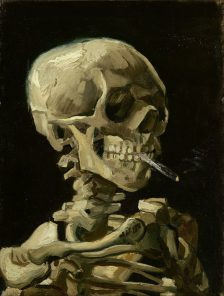Opinion - Two Deaths and My Life - The New York Times

Things about Memento mori wiki - TheReaderWiki

Artistic or symbolic reminder of the inevitability of death The outer panels of Rogier van der Weyden's (c. 1452) reveal the skull of the customer displayed in the inner panels. The bones rest on a brick, a sign of his previous industry and achievement. (Latin for 'bear in mind that you [have to] pass away') is a creative or symbolic reminder of the inevitability of death.

You Must Stare This Scary Fact in the Face- RyanHoliday.net
Memento mori jewelry with skull or coffin themes became popular in the late 16th century, and it was shown in the artistic genre of, where symbolic things such as hourglasses and wilting flowers symbolized the impermanence of human life. Pronunciation and translation [modify] In English, the expression is noticable,.
Simply put, "remember death" or "keep in mind that you pass away". This Author of the idea [modify] In classical antiquity [modify] The philosopher Democritus qualified himself by going into solitude and often visiting burial places. Plato's, where the death of Socrates is recounted, introduces the concept that the appropriate practice of viewpoint is "about absolutely nothing else but dying and being dead".
The Definitive Guide to Memento mori - Wikipedia
The Stoic Epictetus informed his students that when kissing their kid, bro, or friend, they must remind themselves that they are mortal, suppressing their pleasure, as do "those who guarantee males in their accomplishments and remind them that they are mortal". The Stoic Marcus Aurelius invited the reader to "consider how ephemeral and suggest all mortal things are" in his.
The 2nd-century Christian author Tertullian claimed that throughout his triumphal procession, a triumphant general would have someone (in later versions, a slave) standing behind him, holding a crown over his head and whispering "Respice post te. Hominem te keepsake" ("Take care of you [to the time after your death] and remember you're [only] a male.").

Memento Mori Paperweight - Moth - The School of Life
In Europe from the middle ages period to the Victorian age [modify] (15th-century fresco). No matter one's station in life, the Dance of Death unites all. Viewpoint [modify] The thought was then made use of in Christianity, whose strong emphasis on magnificent judgment, heaven, hell, and the salvation of the soul brought death to the forefront of consciousness.
